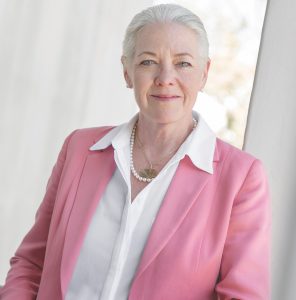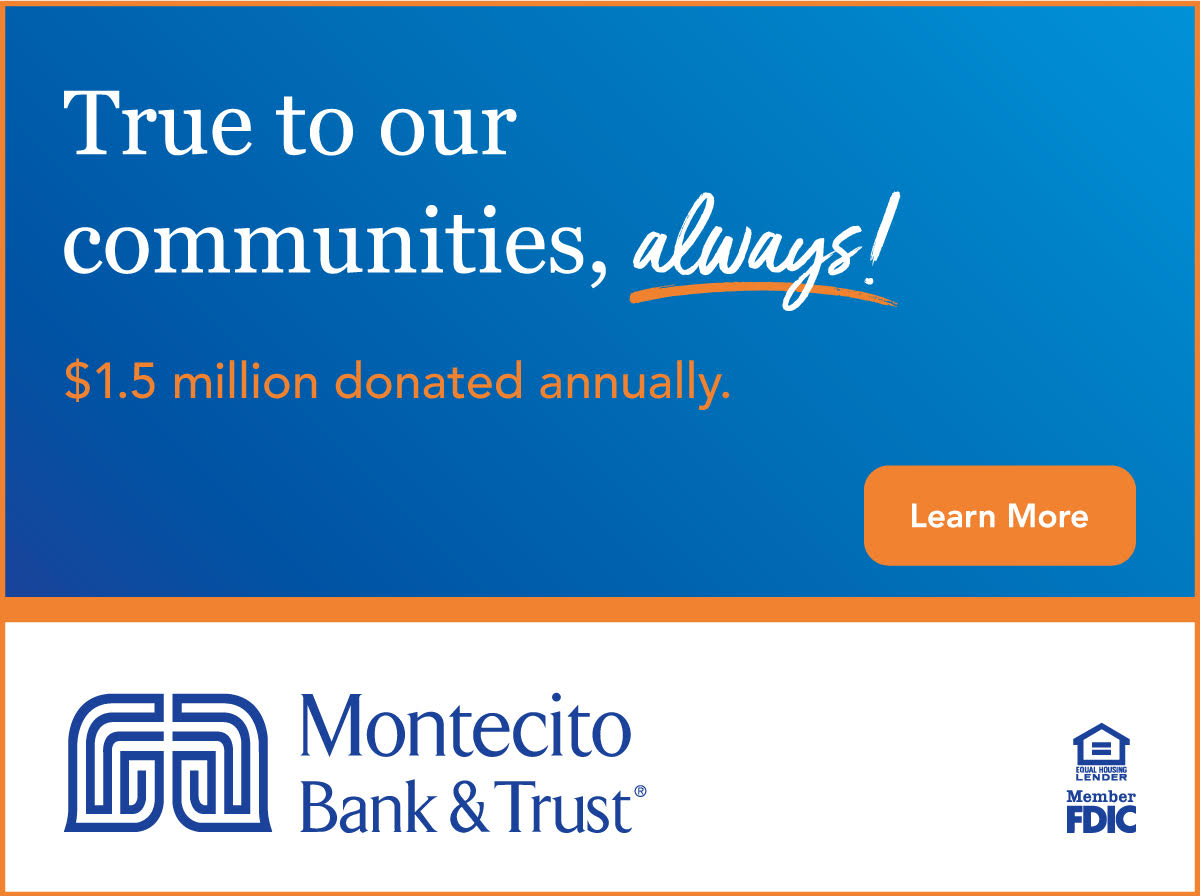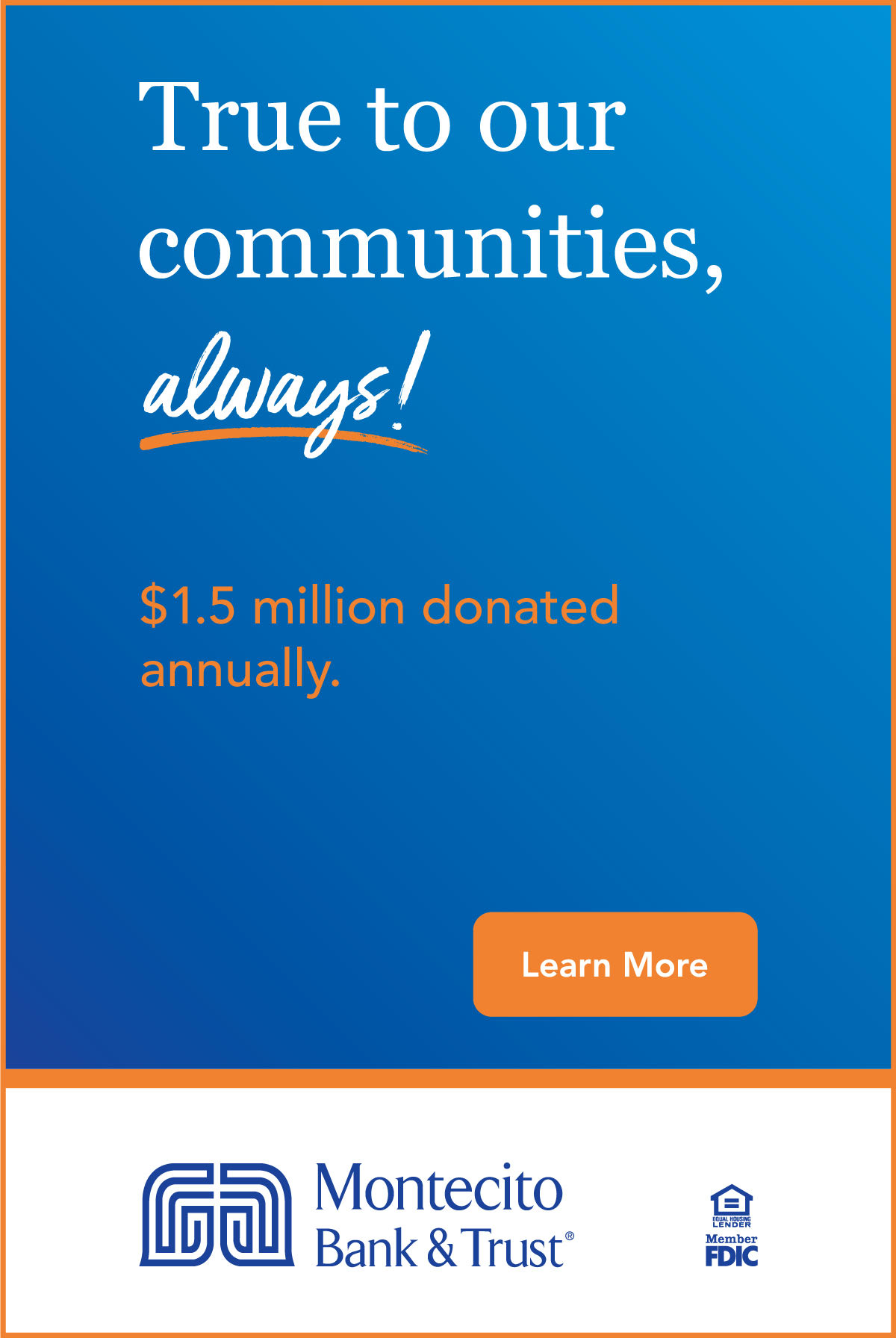The Horse Project
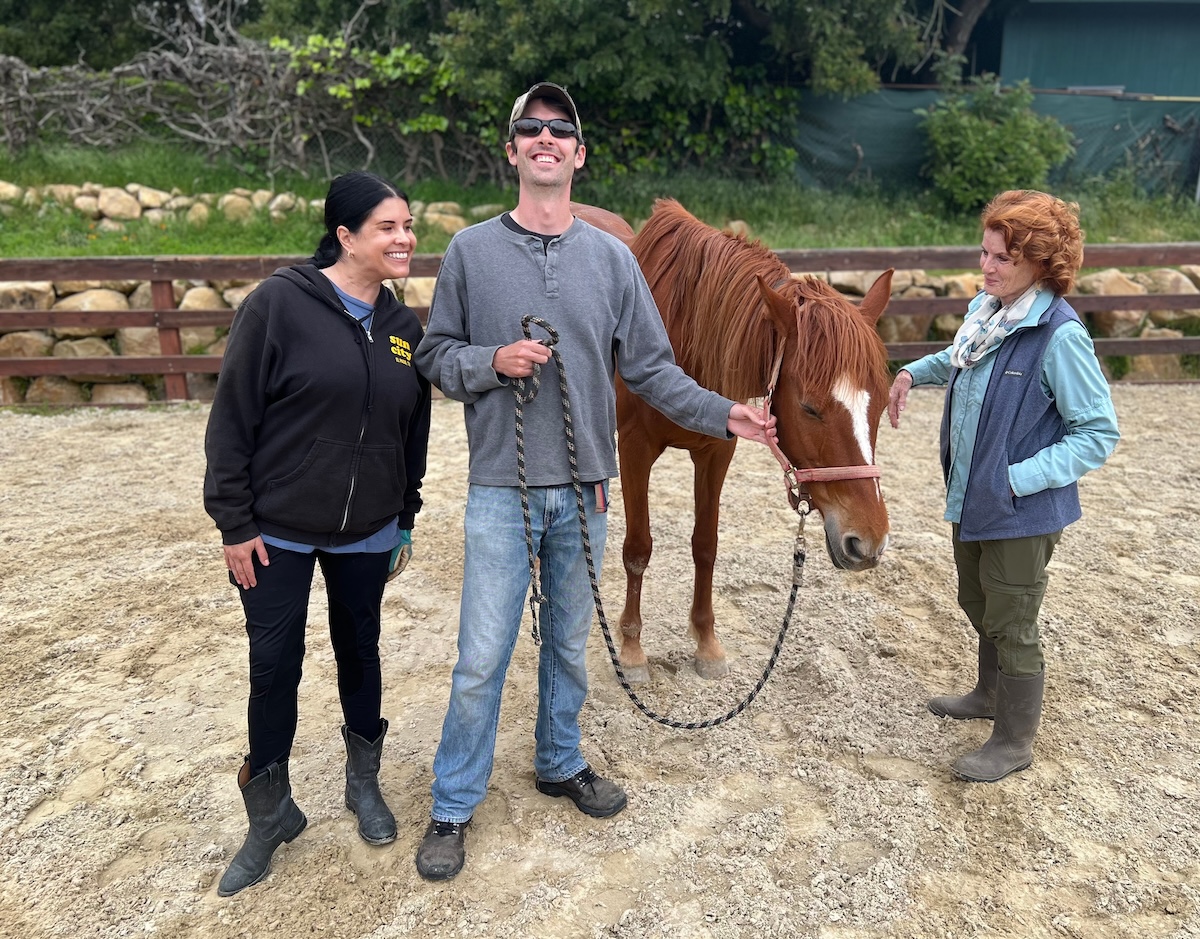
It was just a year ago that The Horse Project rejiggered their mission after a decade spent simply rescuing, rehabilitating and, as often as possible, rehoming horses that had been abandoned, abused and/or neglected. When new accommodations can’t be found for the rescued equines, the horses get to spend the rest of their lives at The Horse Project’s sanctuary, where they are loved and cared for around others of their kind.
But a few years ago, Project Leader Linda Kiefer had an aha moment about the all-volunteer organization.
“We were coming here to help the horses, and we realized that the horses were doing as much for us as we do for them – if not more,” she said.
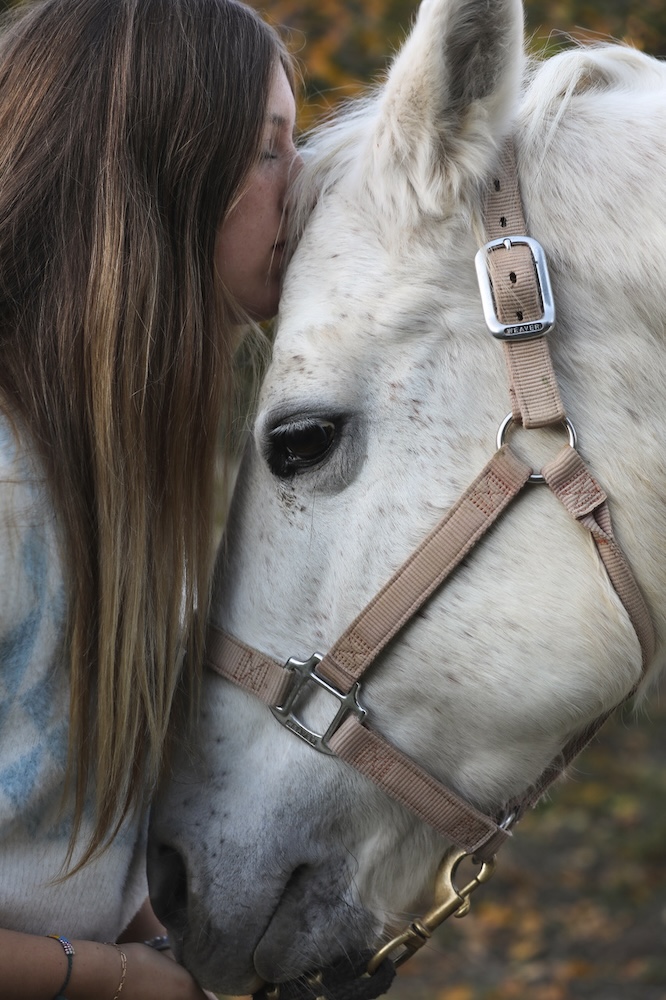
That gave birth to the Santa Barbara chapter becoming its own nonprofit, employing a new slogan – “People Helping Horses. Horses Helping People” – and the creation of the Better with Horses program. The initiative pairs people suffering from physical, emotional or mental health distress with the equine animals, a remarkably effective form of therapy, Kiefer said.
“Our rescued horses are naturally master teachers,” said Kiefer, who trained as a PATH certified (Professional Association of Therapeutic Horsemanship) riding instructor and is also a certified Therapeutic Coach. “There’s a well-documented empathic bond between people and horses.”
Kiefer said what used to be considered magic or “woo woo” has been scientifically studied by the HeartMath Institute, which showed that the horses’ huge beating hearts literally synchronize with those of proximal humans, or vice versa, inducing a calm and peaceful state for people just being around them.
“When they’re not being physically threatened, horses live in the polyvagal rest and digest state,” she explained. “So just by being with them, you don’t have to do anything to get more into that rhythm.”
The Better with Horses program doesn’t stop there, but rather employs the animals to assist in other therapeutic modalities, allowing the horses’ natural instincts and way to guide the human through subtle transitions.
“They’re herd animals so they can teach us a lot about relationships, trust, and connection,” Kiefer said. “They have huge emotional IQ. While we have intuitive awareness three or four feet around us, theirs is more like 15 feet. They can feel our body and our body changes. The horses know what’s going on inside.”
It doesn’t matter what people might be saying to cover up the inner issues, she said. Posture and words mean little to the horses.
“They’re like biofeedback machines. They’re mirrors to what’s going on inside of you. And when you become aware and acknowledge what you’re experiencing and become congruent, the horses get calmer.”
Kiefer said the program teaches breathing and self-coaching tools, showing people how to bring themselves into a more beneficial state. “If you can bring your body into a resting state and allow it to calm down, whatever decisions you make from that point are a lot more powerful.”
That was the premise behind The Horse Project’s 2024 collaboration with Blind Fitness, a 501(c)(3) nonprofit dedicated to empowering individuals who are blind or have low vision. The eight-week journey involved a cohort of those who were formerly sighted but now are legally blind. The group spent one day a week learning about and being with the horses – and thus learning about themselves. Leaving their canes at the arena gate, the participants were guided in meeting the horses, literally hands-on from head to tail, hoof to topline.
The work in the arena helped the participants to a sense of newfound confidence and a different mindset, including being able to lead their horse through an obstacle course with only voice assistance.
The Horse Project’s Better with Horses program is currently midway through another pilot with Women Veterans in wheelchairs sponsored by the California chapter of the Paralyzed Veterans of America. As with Blind Fitness, participants’ video testimonials rave about the effectiveness of the equine therapy.
Importantly, the “People Helping Horses. Horses Helping People” concept runs through these programs too.
“We work with the horses before they become part of the program to make sure that this is something that they’re good at, that they want to do, and are well-suited for,” Kiefer explained. “They enjoy being around people and interacting.”
The Horse Project is fundraising to expand on both programs, including working with women veterans who are physically able but burdened with trauma or other mental or emotional issues.
“We are looking for people, organizations and businesses to sponsor one person or assist in underwriting the program and support the horses in doing it,” Kiefer said. “There are other pairings that we hope to put together and are prepared to do if we can find sponsorships. That includes first responders and cancer survivors who have faced death from different perspectives. We want to work with high school kids, and seniors making life transitions. It’s about thriving, not just surviving.”
The Horse Project also fundraises through its “Play with Rescued Horses” events that take place most Friday, Saturdays, and Sunday mornings. No previous horse experience is required in order to participate in the hands-on experience with the horses – joining the volunteers in the day’s activities to keep the animals healthy, happy, curious, and well. Walking, leading, bathing, grooming, lunging (a horse moves in a circle around a handler on a long tether), massaging, playing, and just hanging out are all part of the experience.
“We don’t always know what to expect,” Kiefer said. “But no matter how people arrive and whatever they end up doing, they always leave smiling.”
The Horse Project also continues to rescue distressed animals and rehabilitate them for possible adoption – an effort that also, of course, feeds into the Better with Horses program.
“That’s the People Helping Horses part,” Kiefer said. “It’s still half of what we do.”
For more information, details on all the programs, and to make a possible donation or volunteer, visit www.thehorseprojectsantabarbara.com
The Horse Project, Inc.
Donate now!thehorseprojectsantabarbara.com
Project Leader: Linda Kiefer
(805) 680-6498
Mission
To rehabilitate, re-train, and re-home rescued horses who have been abandoned, abused and neglected.
Begin to Build a Relationship
We know you care about where your money goes and how it is used. Connect with this organization’s leadership in order to begin to build this important relationship. Your email will be sent directly to this organization’s director of development and/or Executive Director.
Volunteering at the Horse Project is a deeply fulfilling experience for me. It allows me to contribute to the well-being of these magnificent animals, each with their own story of resilience. Diego, my favorite horse, has a special place in my heart due to his gentle yet playful nature and the incredible bond we’ve formed. Donations are crucial to ensure that these rescued horses receive the care they need, from proper nutrition to medical attention, which is why I also give a monthly gift. Your support helps provide a safe haven for them, allowing them to heal and thrive. Every contribution makes a significant difference in their lives.
Support the Ongoing Efforts of Healing Horses and People
The Horse Project is constrained by resources and space. “$3,000 sponsors a Better With Horses participant. $7,500 is a year’s basic cost to rescue a horse,” explains Linda Kiefer, Project Leader. “For space we have even temporarily used someone’s backyard to keep a horse alive.”
Every donation goes directly to rescuing horses that, in turn, rescue people.
The overarching goal is a place to call home. “There is a suitable property with potential to be a community gem, preserving open space. To enter negotiations we need one million dollars,” says Kiefer. “We trust donors recognize the value of a safe, healing place for people, horses, and nature.”
Key Supporters
May and Bill Allison Foundation
Mission Wealth
Montecito Bank & Trust Anniversary Grant Award 2023
Colleen Parent Beall
Sarah McLelland
Gian Cataudella
Susan Dalton
